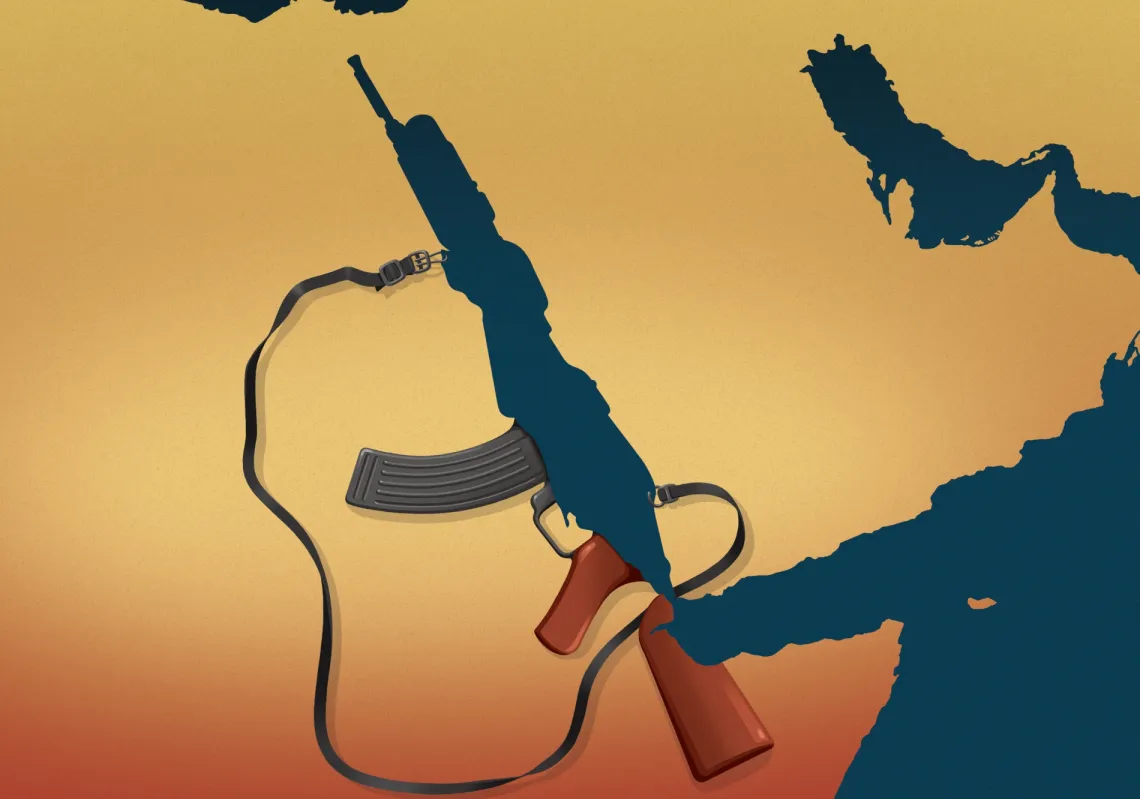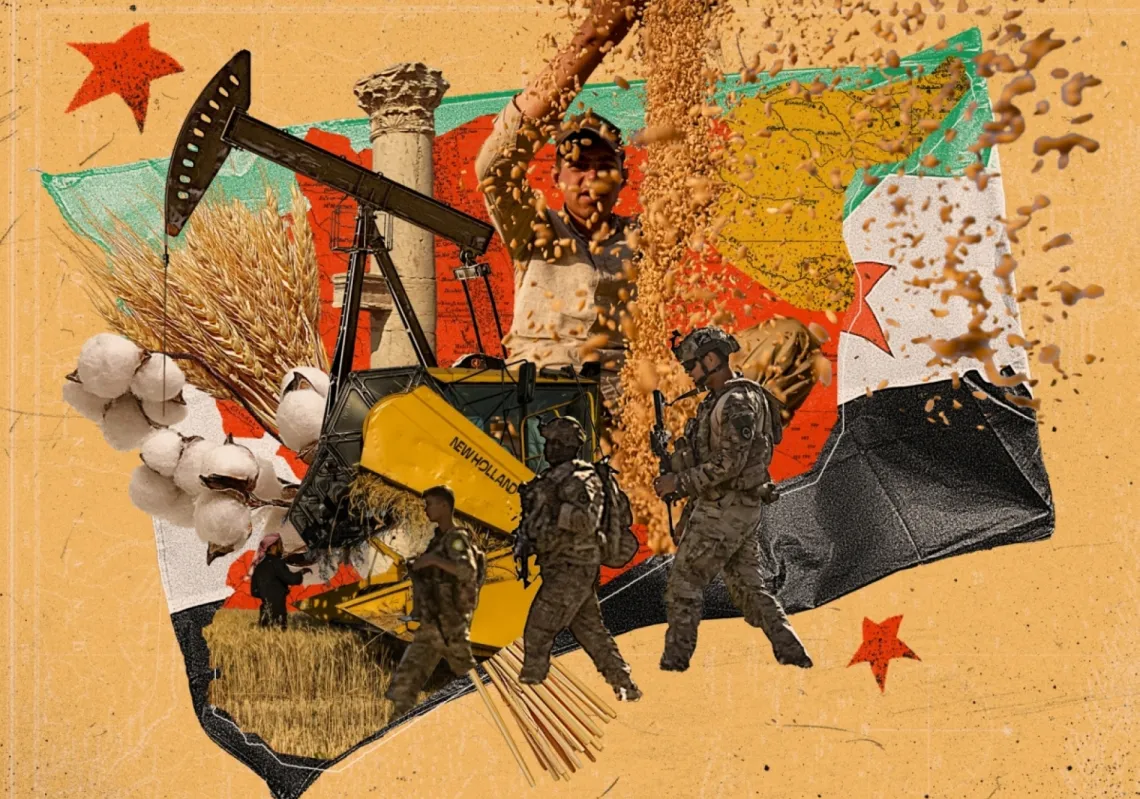 [/caption]
[/caption]
Admiral Shabazz Aladeen, dictator of Wadiya, has much in common with other despots. He is an ophthalmologist like Al-Assad of Syria, and rewrites his nation’s dictionary like Turkmenbashi of Turkmenistan. (When he changes the words ‘positive’ and ‘negative’, alike, to ‘Aladeen’ the work of HIV doctors in Wadiya suddenly becomes a lot more complicated). At heart, however, Aladeen is a caricature of the one-time Brother Leader and Guide of the Revolution, Colonel Muammar Qadhafi. He is tall and handsome, bombastic and energetic, a flamboyant dresser who is never without a phalanx of beautiful female bodyguards.
Aladeen is the star of The Dictator, the new film from Sacha Baron Cohen and Larry Charles, the team behind the films Borat and Brüno. Following the bloody end of Gaddafi, it might be the first post-Arab Spring film. But is The Dictator a fitting commentary on these revolutions, in all their optimism, messiness, success and failure? Well, no. It’s a series of bum and fart gags. The problem for a reviewer is trying to explain why a very funny and very stupid film is also, unfortunately, quite a bad thing.
[inset_left]is The Dictator a fitting commentary on these revolutions, in all their optimism, messiness, success and failure?[/inset_left]
The Dictator is genuinely funny, at its best in the rapid-fire micro-sketches that open and close the film. Aladeen is shown at his birth, beard already in place. A voiceover sorrowfully declares his mother died in childbirth, as his mother is seen being smothered with a pillow by her obstetrician. In the Wadiya olympics, Aladeen wins the 100 metres by firing the starting gun after he has left the blocks, and continues to fire at anyone who threatens to overtake him. The sketches may be broad, but who could doubt that they reflect the barbarism of Gaddafi or the Assads who turned murder into state policy?
The plot sees Aladeen visit America, where he is deposed by his wicked uncle (Ben Kingsley). Aladdin always has a wicked uncle, it seems. But with the help of a vegan grocer (Anna Faris), our hero wins out and delivers a speech at the UN. Redeemed by love, Aladeen promises democracy ... while continuing to behave pretty much as before.
The Dictator is a scripted feature yet it follows exactly the template set by Cohen’s previous gonzo mock-documentaries, TVs Ali G Show and the films Borat and Brüno. In each case, the big idea is letting Cohen’s character loose in America. At heart, these are satires of American gullibility: over and over, Americans are seen failing to condemn or, worse, encouraging the excesses of Cohen’s monstrous creations. Cohen targets both intolerant conservatives, who indulge his characters’ homophobia and racism, and polite liberals who fail to criticise out of dubious respect for foreignness.
[inset_right]At heart, these are satires of American gullibility[/inset_right]
The most famous example is the scene in Borat where Cohen persuades a rodeo audience to sing a fictitious Kazakh folksong with the refrain “throw the Jew down the well’. Cohen has said that he believes the road to Auschwitz was “paved with indifference” and wants to shake us out of our complacency. Cohen’s Jewish identity is important to him. His company is called ‘Four by Two’, rhyming slang for Jew, and the apparently anti-Semitic Borat and Aladeen speak Hebrew on screen. Battling laziness and prejudices is a worthy object for satire, yet in Cohen’s case it also opens tough questions.
If Cohen’s creations are designed purely to expose the failures of a western audience, how real are they? How real should we treat them? Borat is not meant to be Kazakh, he is a cartoon-figure designed to perform a function. On the other hand, his nationality was not chosen entirely at random, either. The anti-Jewish pogroms of 19th Century Russia were enforced by Kazakh cavalrymen, better known in the west as Cossacks. However, these troops were not ethnically Kazakh but, rather, Russian troops who styled themselves as Kazakhs out of a peculiar form of Orientalism. After Borat, the Kazakhs have become a byword for racism and stupidity. How different is Cohen’s confusion to the mistake of the illiterate vigilante in Wales who hounded a paediatrician in her home because he mistook her for a paedophile?
The emptiness at the heart of Cohen’s characters causes other problems. When co-writer, Jeff Schaffer, says that Cohen ensures his “victims are worthy, so that there’s a satirical aspect to the comedy ... these are not innocent victims”, he is referring to the targets exposed by Cohen, not to Cohen’s characters. In The Dictator, the targets are the United Nations, leftwing activists and health-shop owners. As Aladeen attacks this assortment of dupes whose tolerance and indifference has allowed tyranny to flourish, the preening figure of Aladeen becomes our hero, the man who exposes these fools for what they are. By emptying Aladeen of everything but his good looks and braggadocio, Cohen lets real-life dictators off the hook. His Aladeen is Qadhafi stripped of everything that made Qadhafi horrible, and we are left with a fun guy we kind of like.








